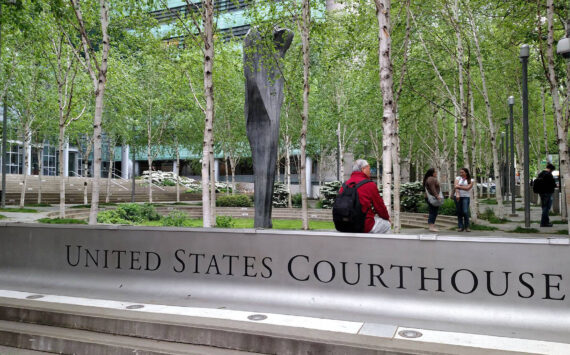It’s possible to read too much into it, but it’s also hard to ignore the fact that Knight Ridder, the nation’s second-biggest newspaper chain and a long-disgruntled minority owner of The Seattle Times, is acquiring three midsized Northwest newspapers in a swap with Gannett, the No. 1 chain and publisher of USA Today. Likely by next month, Knight Ridder will take over The Olympian, The Bellingham Herald, and the Idaho Statesman in Boise. In the exchange, which also involves cash, Gannett gets the Tallahassee Democrat in Florida, where Gannett already has a big presence.
With the switch, Knight Ridder, with 34 dailies, overnight becomes a notable player in Northwest media. The Olympia, Bellingham, and Boise papers will be the company’s only wholly owned properties in the West outside its flagship San Jose Mercury News and a handful of smaller California papers. But Knight Ridder also has a long-standing 49.5 percent interest in the Seattle Times Co. CEO Tony Ridder sits on the Times Co. board, and he and Seattle Times Publisher Frank Blethen, whose family owns the controlling interest, have made no secret of their mutual dislike. Among other things, Knight Ridder doesn’t think the Blethens’ profit margins have been sufficient. (Lately, of course, the Times says it has no profit margin.) Is Ridder’s company trying to outflank Blethen by acquiring outposts at either end of Western Washington’s inland waters? Almost certainly not. Olympia is an hour south, Bellingham is 90 minutes north on Interstate 5. Not exactly a blitz into the metro area.
Still, Knight Ridder has expressed interest in acquiring The Seattle Times outright a number of times, always to be rebuffed by the Blethen family. As the state’s biggest paper continues losing money, and with Seattle Post-Intelligencer owner Hearst suing the Times over their Times-managed joint operating agreement (JOA), the Blethen family, with a fifth generation in the wings, could be warming to the idea of cashing in. The Times Co. owns two other dailies in Washington and three in Maine. Were Knight Ridder to buy the Times holdings, it would then own five papers in this state, including the biggest and the one in the state capital.
While that kind of deal is certainly possible, it’s very unlikely. Until 2009, Hearst has right of first refusal should the Blethens want to sell the Times. Moreover, the Knight Ridder–Gannett swap is actually a side deal to changes in Detroit, where the real action was last week when all this was announced. Knight Ridder and McLean, Va.–based Gannett are joint-operating-agreement partners there, and Gannett is buying the bigger, morning Detroit Free Press from Knight Ridder and is selling the afternoon Detroit News to Denver-based MediaNews Group. Knight Ridder exits a volatile newspaper market. (The News will switch to morning publication, which will make Detroit very similar to Seattle in the world of federally sanctioned JOAs: two jointly operated, separately owned, editorially competing morning papers.) Ridder last week said his company is “constantly impressed by the performance of our mid-sized and smaller newspapers—especially those in growth areas. This exchange gives us the opportunity to add three newspapers in robust western markets. Each one performs strongly.” The Times said it would not comment on Knight Ridder’s acquisitions.
The likelihood that Knight Ridder got three Northwest papers from among Gannett’s holdings as some long-term Seattle strategy would assume an awful lot of forethought. “I don’t think there’s any connection with Seattle at all,” says Knight Ridder spokesperson Lee Ann Schlatter in San Jose. “We wanted to acquire some newspapers that would leave us cash-flow equivalent. Then it was a matter of working through what was there, what would make it work, and what was available [from Gannett] that would leave us with the same cash flow as before.” Knight Ridder, Schlatter says, was looking for strong growth markets, and “everybody seems to be doing clustering these days,” meaning if you’re going to acquire several smaller papers, it makes sense to have them in the same region.
That said, Knight Ridder’s presence in Washington does suggest another possible outcome to the JOA legal fight, which is still likely to end with the P-I closing and the Times dominating the Seattle market. The only question will be who ends up owning the Times—the Blethens, Hearst, or, now, Knight Ridder.






